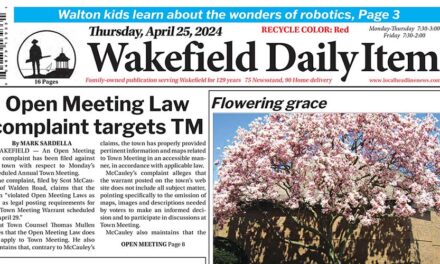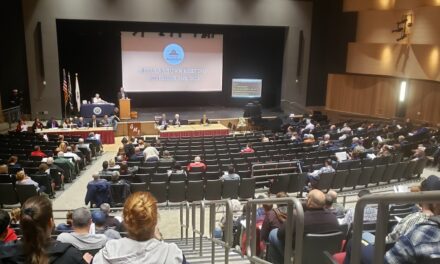Published in the October 9, 2018 edition.
WAKEFIELD – As a prelude to its planned Oct. 23 unveiling and discussion of the spring 2018 Wakefield MCAS results, tonight the School Committee will get a look at a just-released report on the statewide MCAS results as well as an overview of the changes to the assessment and the refinements happening at the state level.
The Massachusetts Comprehensive Assessment System (MCAS) is the Commonwealth’s standards-based student assessment program. The report summarizes the state-level results from the spring 2018 administration of MCAS tests in English Language Arts (ELA), Mathematics and Science and Technology/Engineering (STE). The report examines trends in state results and analyzes changes in academic achievement gaps between demographic groups.
According the Massachusetts Department of Elementary and Secondary Education (DESE), in 2018, Massachusetts continued the process of transitioning the MCAS program to next-generation tests. The next-generation tests include new test designs and item types and are intended to be administered primarily via computer, though the Department is making paper-based versions available during the transition period and will offer paper-based tests on an ongoing basis as an accommodation for some students.
All students who are enrolled in the tested grades and who are educated at public expense are required by state and federal law to participate in MCAS testing. In spring 2018, a total of 499,377 students in grades 3–8 and 10 participated in at least one MCAS test. On individual tests, the percentage of enrolled students who participated was consistently high statewide, ranging from 98 to 100 percent. These figures include regular education students, students with disabilities, and English learner students.
In March 2017, the Board of Elementary and Secondary Education adopted new achievement levels for the next-generation tests at grades 3–8. These next-generation achievement levels differ from the legacy MCAS achievement levels and are reported using a different scale. The next-generation achievement levels are designed to provide an indication of whether a student is on-track to succeed in the subject matter and whether extra academic assistance may be needed for the student.
Because next-generation MCAS tests are scored on a different scale from the legacy tests, DESE stresses that next-generation scores should not be compared to legacy scores.
The report notes that Science and Technology/Engineering (STE) at grades 5 and 8 were administered primarily by computer but were considered legacy tests because the test designs and operational item types followed the format of previous legacy assessments.
MCAS test results are used for three primary purposes: 1) to inform and improve curriculum and instruction; 2) to evaluate student, school and district performance according to the Massachusetts curriculum framework content standards and MCAS performance standards; and 3) to determine whether a student has met the state requirements for the Competency Determination (i.e., whether a student is eligible for a high school diploma).
In the just released report on last spring’s statewide Next Generation MCAS tests for grades 3-8, the percentage of students scoring “Meeting Expectations” or higher ranged from a high of 54 percent at grade 5 to a low of 46 percent at grade 7.
On the 2018 next-generation Mathematics test, the percentage of students scoring “Meeting Expectations” or higher ranged from a high of 50 percent at grade 3 to a low of 46 percent at grades 5 and 7.
Statewide in 2018, 47 percent of students statewide scored “Proficient” or higher on the grade 5 STE test, while 35 percent scored “Proficient” or higher on the grade 8 STE test.
In 2018, the percentages of students statewide scoring “Proficient” or higher were 91 percent for grade 10 ELA, 78 percent for grade 10 Mathematics, and 74 percent for high school STE.
Tonight’s School Committee meeting gets underway at 7:30 p.m. at the WCAT Studios in the rear of Wakefield Memorial High School.




